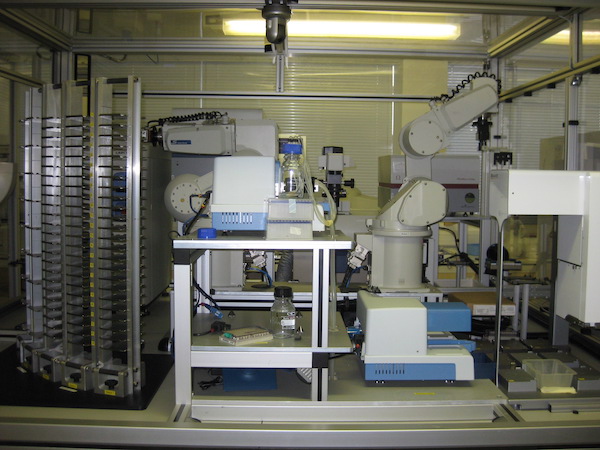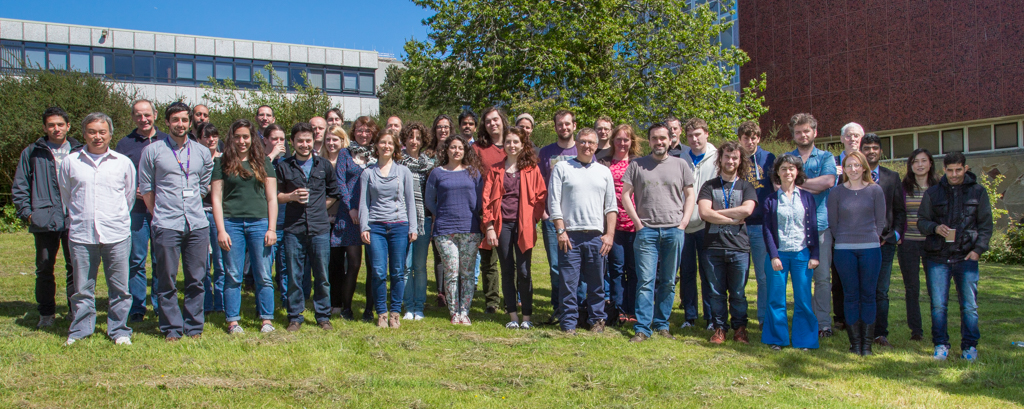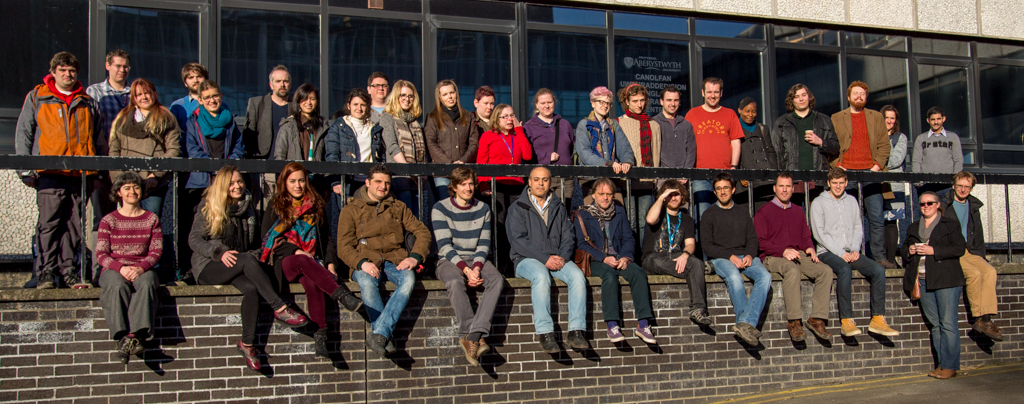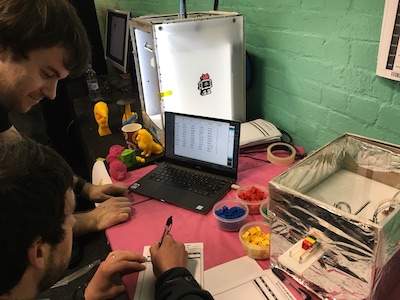The Bioinformatics and Health Informatics Group
This research group was originally known as the Computational Biology group, then the Bioinformatics and Computational Biology group. In 2023, the group became the Bioinformatics and Health Informatics group.
The group formed around 1998 when Ross King was appointed as a lecturer. Jem Rowland had already been working with Douglas Kell in Biology on the analysis of biological phenomena using computational and AI methods. Nigel Hardy brought more biological expertise, George Coghill contributed systems identification techniques and Bjørn Alsberg worked on chemoinformatics.
A significant achievement was the project on the Robot Scientist, reported in the paper Functional genomic hypothesis generation and experimentation by a robot scientist in Nature. This created an autonomous biological laboratory in which a robot moved samples and agents in and out of various equipment in order to perform experiments. Hypotheses could be tested by these robot experiments and then the results were analysed by AI software which refined or designed further experiments. The whole system was based on Inductive Logic Programming which is a logic language (think of Prolog) that is able to generate hypotheses from data. The Robot Scientist became internationally known and led on to further laboratory robots for drug design and discovery. Many research staff worked on these large projects (including W Aubrey, R Burbidge, E Byrne, A Clare, F Jones, M Khan, M Liakata, C Lu, M Markham, K Martin, R Pateman, P Reiser, J Rowland, A Schierz, L Soldatova, A Sparkes, K Whelan and M Young).

Other members of the group researched other areas, including Mohammed Ouali working on protein secondary structure prediction and Andreas worked on gene functions and homology detection.
The group, with researchers Amanda Clare, Chuan Lu, Wayne Aubrey and Faisal Rezwan, continues to do innovative research in both computer science and biological science by developing computing and artificial intelligence techniques for application to important biological problems. An essential component in this multidisciplinary field is our close collaboration with the biotechnology and pharmaceutical industries, and with other key research groups. Our current projects are in these areas:
- Data analysis of large scale biological data,
- Formalisation of biological data,
- Systems biology,
- Biomedical informatics,
- Genomics and metagenomics, and
- Pharmacogenomics.
The group runs the Aberystwyth Bioinformatics Workshops (ABW), which began in 2014 and run approximately once per year. These events bring together researchers from Computer Science and Biology at Aberystwyth to report on work and further research opportunities.


The research group contributes to British Science Week activities hosted at the University in March each year. These activities are aimed at school children, encouraging them to enjoy and explore science, and consider STEM for their future studies. This can include activities created by the researchers, for example a genome game and a lego DNA sequencer, both designed to teach school children a little about bioinformatics.
